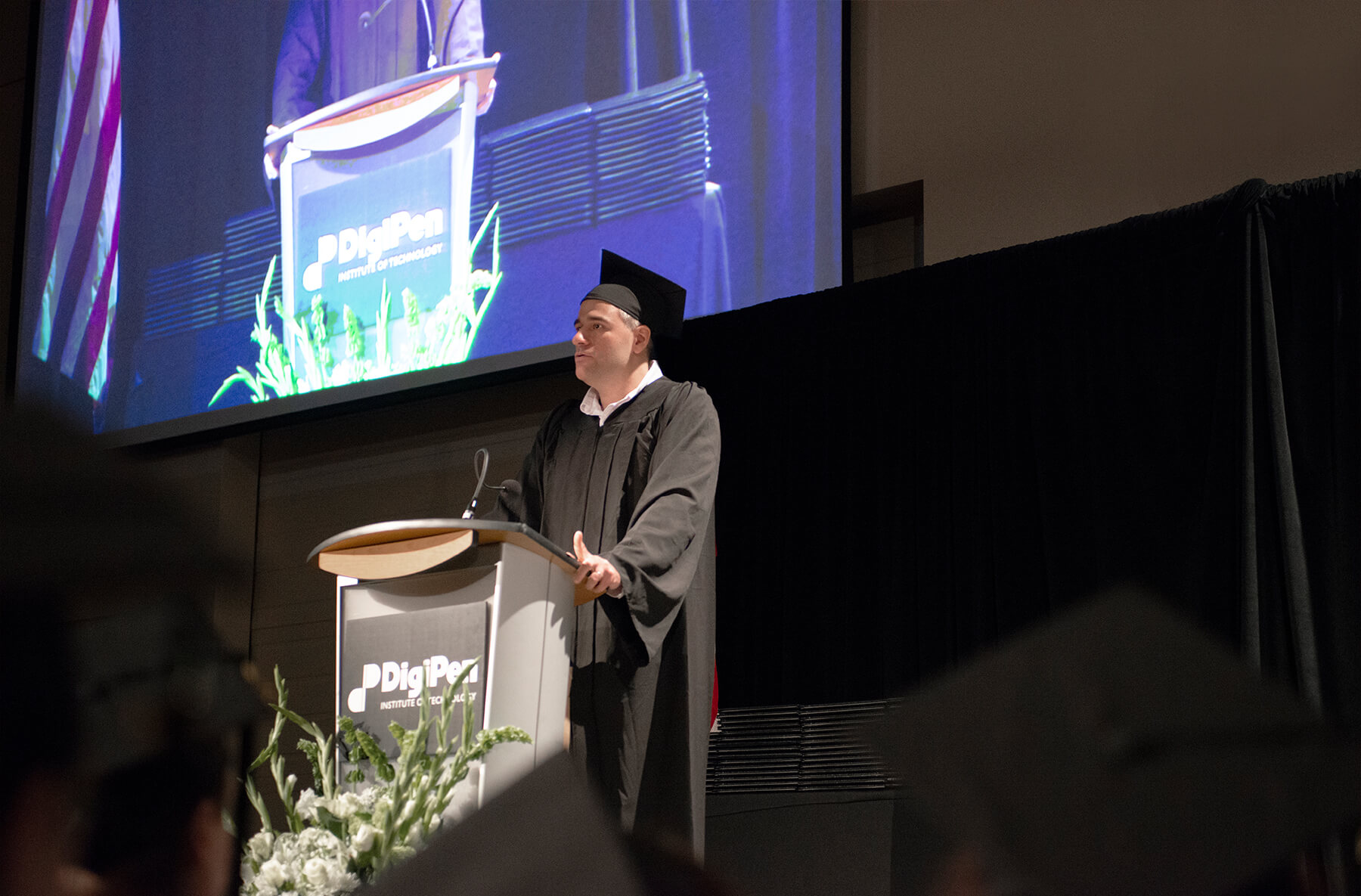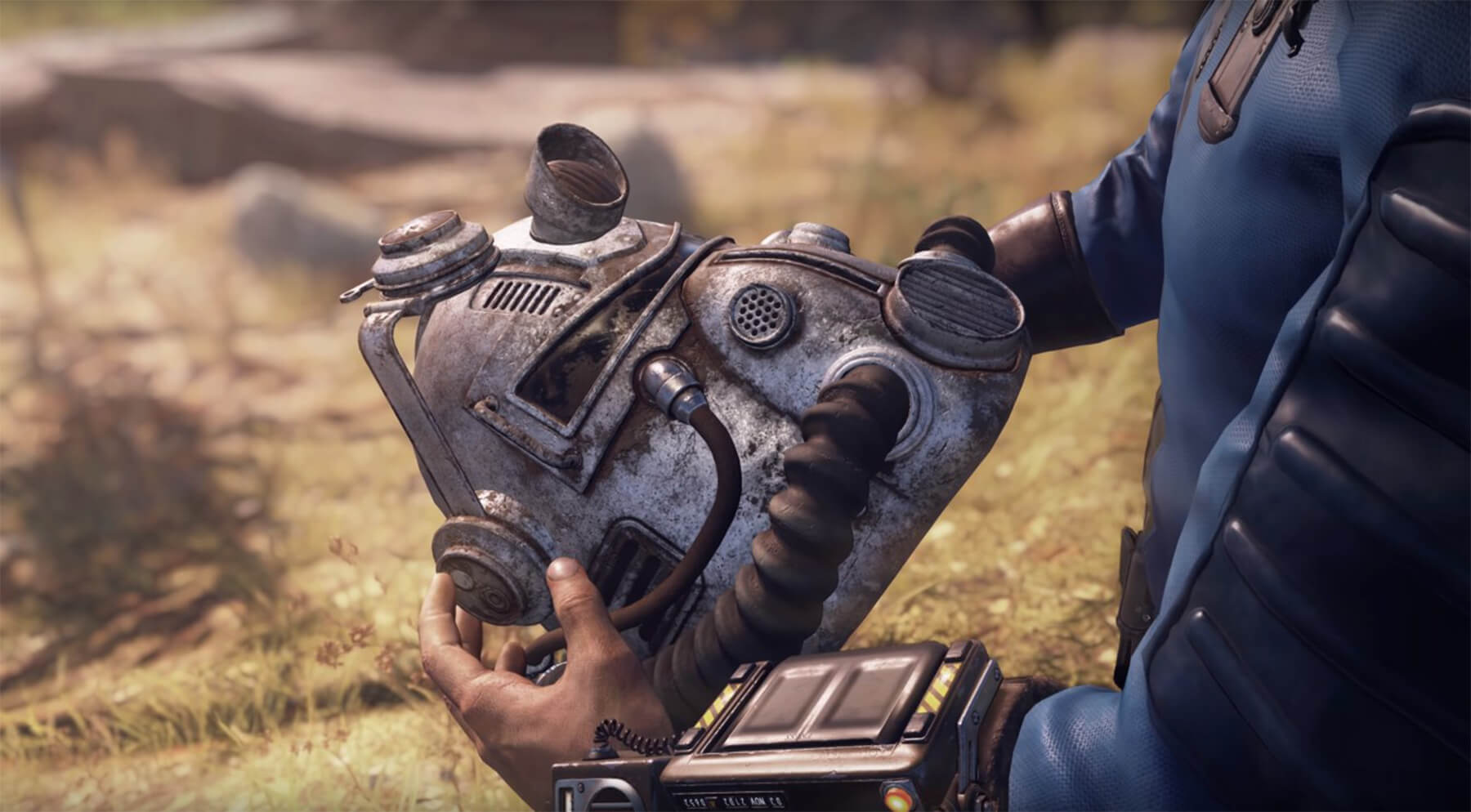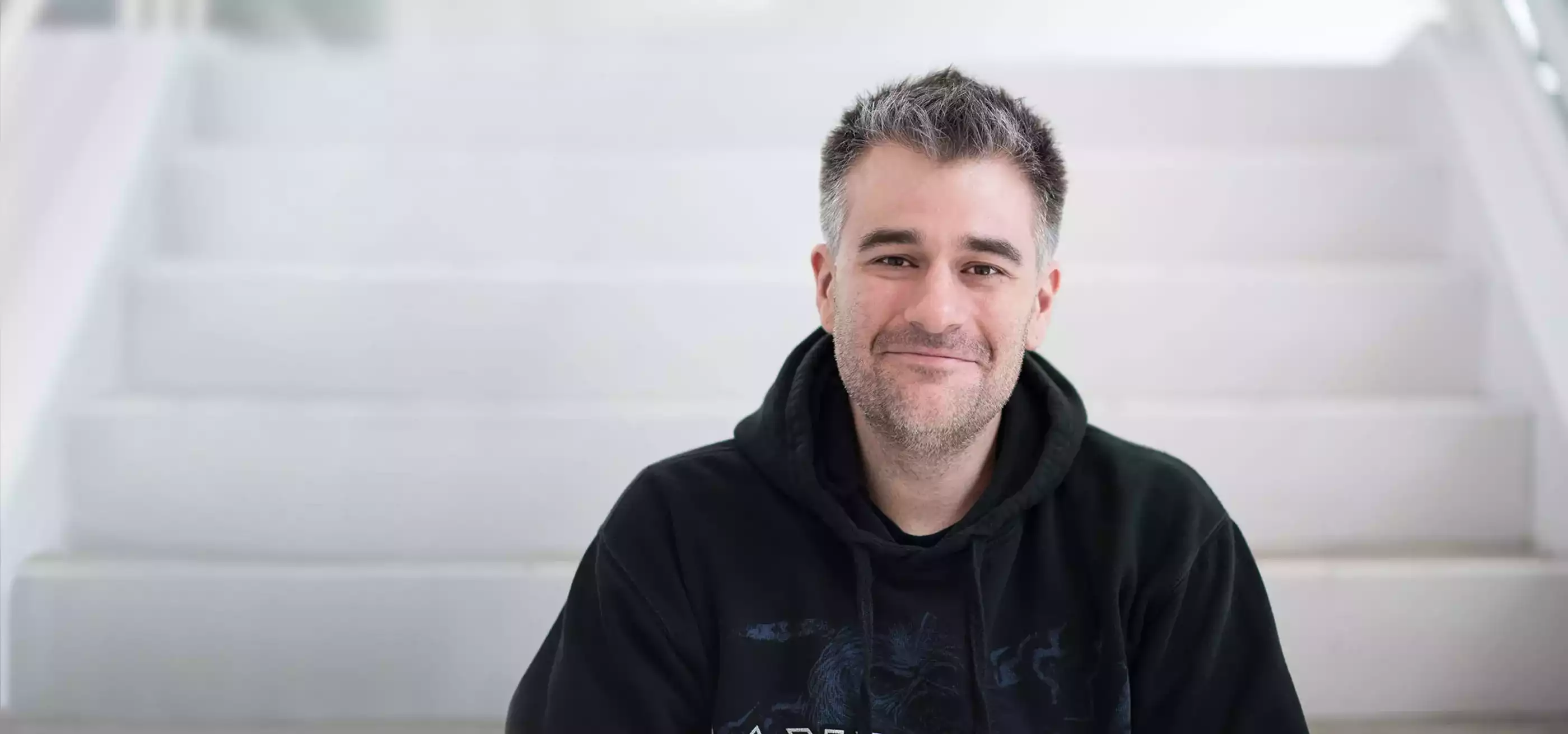Anthony Saulls first started crafting games when he was just a little kid. “I used to make board games and try and get people to play them with me,” he says.
Although he was enraptured by the possibilities that mid-90s titles like Myst and Warcraft II opened up for the budding video game medium, the possibility of making games as a career always seemed distant. “I grew up in Tucson in an area that didn’t have great STEM education or a community with lots of engineering or programming knowledge,” Saulls says. “I knew DigiPen was a thing at the time. I was aware of it, but I didn’t see how I could get in.”
After earning an English degree at a different college, Saulls went down a zig-zagging professional path, trying out everything from film and TV to teaching and music. “None of it really felt right,” Saulls said. “Meanwhile, the whole time, I’m still playing games. So I decided I needed a change of plan.”
After years of experimenting, he decided to heed the call of his very first passion. Even though “it was kind of risky” given his lack of experience in the field, he buckled down, buffed up his math skills, and came to DigiPen to enroll in the BS in Computer Science in Real-Time-Interactive Simulation program.
According to Saulls, up until his junior year at DigiPen, when he spent 10 months as an intern working on Middle-Earth: Shadow of War at Monolith Productions, he approached his DigiPen education like a regular job. “I’m not exaggerating when I say I was actually here on campus every single day it was open, including summer sessions,” he says. Determined to “squeeze every ounce” of opportunity out of his time at DigiPen, he made a point to take as many classes as possible, drawing on what he sees as one of the biggest resources DigiPen has to offer. “Going to DigiPen is like having this really amazing coach that’s always there to help you,” Saulls says. “You still have to do all this hard work and learn these lessons on your own, but this coach — these professors — being there and available to help when you really need guidance, that’s what’s really important about this school.”

Come graduation, Saulls found himself nominated by his professors to be the student speaker for the 2018 commencement ceremony, with a full-time programmer position waiting for him in Maryland. As fate would have it, Saulls’ non-linear journey to DigiPen led to a job at Bethesda Game Studios, developer of the beloved and famously non-linear Fallout and Elder Scrolls series. “It’s the best place I’ve ever worked, hands down,” Saulls says of the studio, where he now works on the online action role-playing game Fallout 76. “For me, it’s the perfect place.”
Saulls says he knew he wanted to work at Bethesda ever since his sophomore year at DigiPen. That was the year he watched renowned Bethesda developer Todd Howard give his lifetime achievement award acceptance speech at the Game Developers Conference. “Just his candor and whole attitude, I wanted to work there just based on that,” he says. “But obviously the huge, epic games they make was a big draw too. When I first played The Elder Scrolls IV: Oblivion, it was mind blowing. It was totally open and didn’t force you to follow any particular path.”

In that regard, Saulls says working at Bethesda is actually quite similar to their games. “It’s not like someone comes and gives you a bunch of tasks that you need to start doing in order,” Saulls says. “Coming in as new as I did, nobody stopped me and said not to do certain things or work on certain things. If it was a situation where I saw something that needed to be done and I saw a solution, I could just do it. A lot of my satisfaction here is driven by me noticing something that might need to happen, and then someone else goes, ‘Yeah, you’re on the right track!’ And then you get to kind of own that process, which is really cool.
“The attitude is very much like student teams at DigiPen. Your value is what you can bring to the team, your knowledge, how hard you’re working, and how much you’re participating in the process. One of the skills you acquire at DigiPen is figuring out how to adapt to a very loose guideline and figure it out. You need to be able to investigate and define the problem on your own versus someone just feeding you a problem and a solution.”
Given that Fallout 76 is a continually developed game, constantly providing new updates and features for players, Saulls says he’s enjoying the opportunities that its ongoing “mini development cycles” afford. “There’s a feedback loop that’s really interesting that doesn’t exist in a game you just ship and are done with,” Saulls says. “It’s really nice to be able to continue to listen to players and respond to feedback with changes, and then see players get excited about it. It’s funny, when I was just a fan of the [Fallout] series, I was always going, ‘Oh man, what’s Bethesda going to do next?’ But now that I’m working here, it’s reversed. I’m always asking, ‘Oh man, what are the fans saying? What are the fans doing?’”
